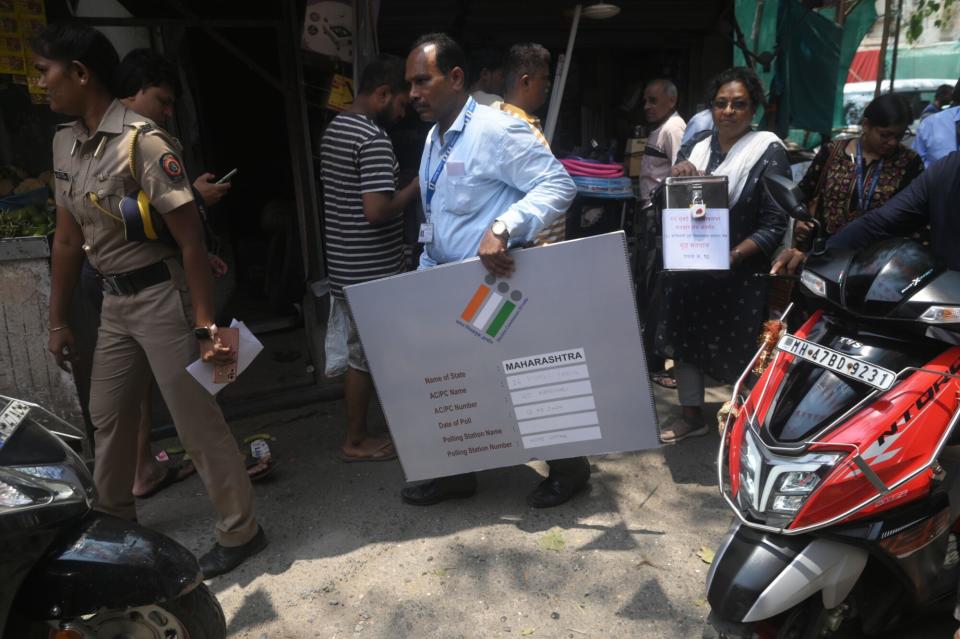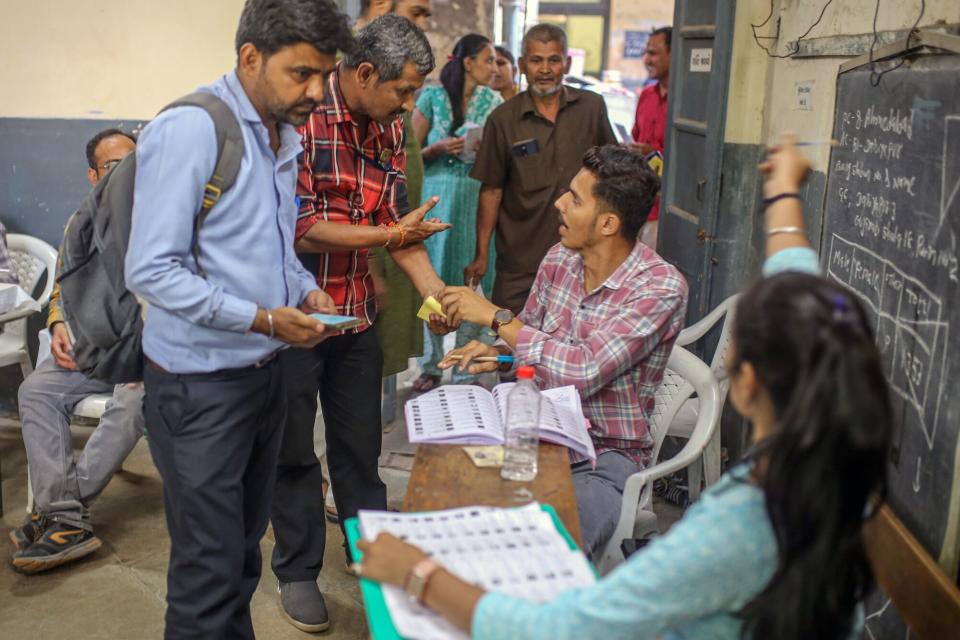India’s Vote Crosses Halfway Mark as Kashmir Goes to Polls
(Bloomberg) -- Sign up for the India Edition newsletter by Menaka Doshi – an insider's guide to the emerging economic powerhouse, and the billionaires and businesses behind its rise, delivered weekly.
Most Read from Bloomberg
Trump Vows ‘Day One’ Executive Order Targeting Offshore Wind
Macron Puts French Banks in Play With Plan to Transform Europe
Tesla Rehires Some Supercharger Workers Weeks After Musk’s Cuts
Five Under-the-Radar Billionaires Making Vast Fortunes in Modi's India
Srinagar, a city in the volatile region of Jammu and Kashmir, voted Monday in the fourth phase of India’s national elections, amid rising concerns about low voter turnout and the campaign’s increasingly acrimonious tenor.
Prime Minister Narendra Modi’s Bharatiya Janata Party isn’t contesting the Srinagar constituency or the two other seats from the Muslim-majority Kashmir region. It’s contesting the two seats in Hindu-majority Jammu.
Modi’s Hindu-nationalist government fulfilled a long-held campaign promise when it removed Jammu and Kashmir’s special constitutional status in August 2019, months after the BJP won its second term. The move was widely condemned, with the region’s politicians jailed for months and communication blocked.
Voting was slow to kick off in Srinagar on Monday morning and continued to stay low with turnout estimated at about 35% as of 5 p.m., according to the Election Commission of India. The average for all voting districts going to the polls Monday was about 62% as of that time.
India’s seven-stage election, which began on April 19, will end on June 1. The votes will be counted on June 4.
The dip in voter turnout in the first three rounds of elections has raised concerns about the BJP’s support, with uncertainty spreading to financial markets. While there are no definite reasons for the slide, analysts and poll watchers ascribe the trend to several factors including an on-going heat wave across the country, the lack of an overarching emotive issue to rally voters, and also the underreporting of deaths during the Covid-19 pandemic, which may have artificially inflated voter rolls.
Jammu and Kashmir has been federally governed for almost five years with state legislative elections only expected after the national polls.
The disputed region, which borders Pakistan and China, has seen decades of separatist violence and continues to be restive. One soldier was killed and four others injured when an Indian Air Force vehicle was attacked by militants last week.
Modi held a roadshow in his own constituency of Varansi after a day of rallies in the eastern state of Bihar. At one of the rallies, Modi said that this election is about choosing the leadership of the country and that the main opposition party is too cowardly to even take on Pakistan.
Balloting will also take place in nine other states to select 96 lawmakers in this latest phase. Voters in 25 constituencies in Andhra Pradesh and 17 in Telangana — key southern states — will choose their representatives.
Modi, who has set an overall target of winning three out of four seats in parliament, needs to expand his party’s presence in the country’s south to realize that ambition.
In the eastern state of West Bengal, investment banker turned politician Mahua Moitra is attempting to regain her seat. Moitra, a member of the regional Trinamool Congress party, is a vocal critic of Modi’s and has questioned his ties with billionaire Gautam Adani. Moitra was expelled from parliament late last year amid allegations of ‘unethical conduct.’
Here are some other key constituencies up for a vote on Monday:
Opposition leader for the lower house of the Parliament, Adhir Ranjan Chowdhury is seeking another term from West Bengal’s Baharampur. The three-term lawmaker faces a triangular contest with the BJP and the regional All India Trinamool Congress party.
Akhilesh Yadav, leader of the Samajwadi party, a key member of the opposition alliance hoping to unseat Modi, is contesting from Kannauj in Uttar Pradesh. Modi’s party won 62 of the 80 seats from the state in the 2019 elections. Yadav takes on the incumbent, a member of Modi’s party, as the alliance tries to flip as many seats as possible.
In the southern, industrial city of Hyderabad, the sitting parliamentarian, Asaduddin Owaisi is competing against the BJP’s Madhavi Latha. Owaisi is a four-time lawmaker from a primarily Muslim party which has not joined any alliance.
(Updates with voter turnout in the fourth paragraph)
Most Read from Bloomberg Businessweek
How the ‘Harvard of Trading’ Ruined Thousands of Young People’s Lives
Cheap Prison Labor Is Keeping People Locked Up Longer, Suit Alleges
‘The Caitlin Clark Effect Is Real,’ and It’s Already Changing the WNBA
©2024 Bloomberg L.P.





